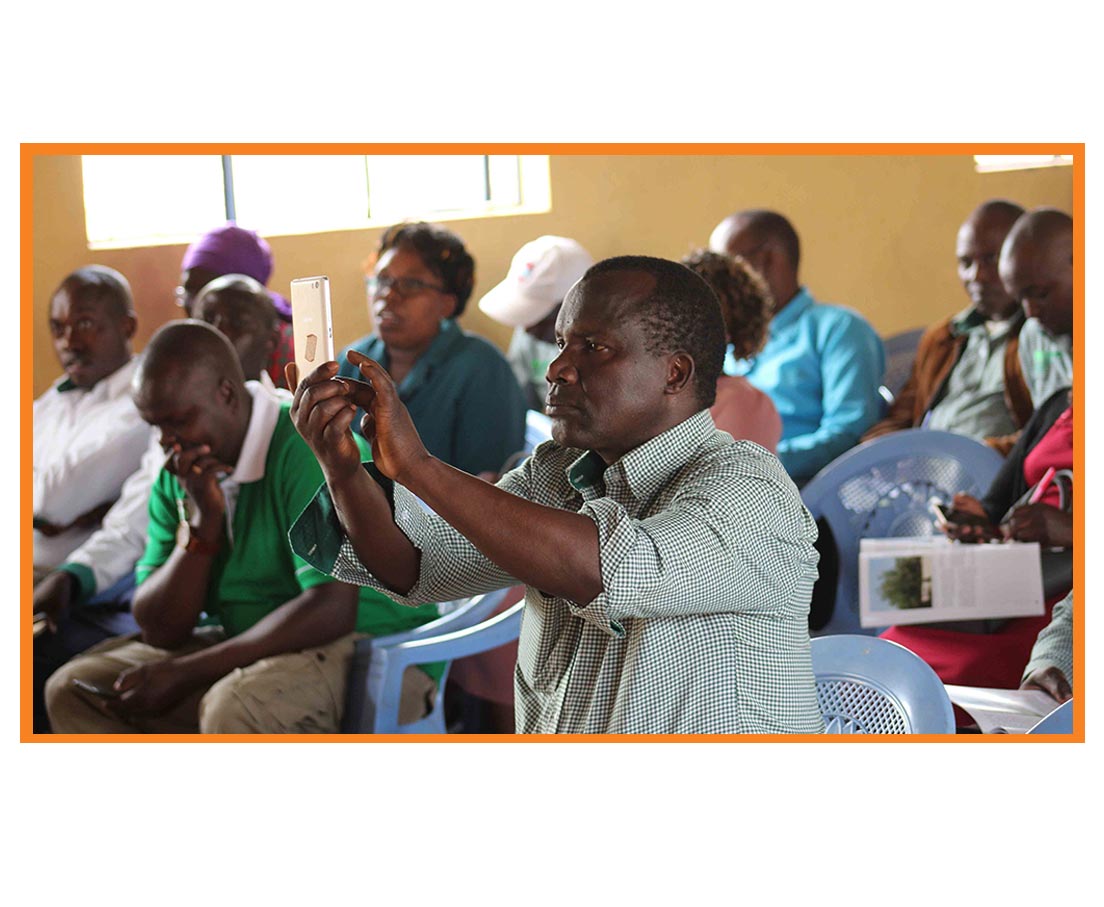Using Mobile Tech in Tracking Tree-planting Projects
The recent rains have been a blessing for schools participating in Phase IV and V of the Schools’ Green Initiative Challenge tree planting competition at Embu, Kitui, and Machakos counties.
‘Green’ teachers, the schools’ environment patrons, had earlier expressed their worries on the chances of survival for the delicate tree seedlings earlier distributed to the institutions courtesy of Better Globe Forestry, one of the project partners, that also includes KenGen Foundation, Bamburi Cement Ltd., and KenGen PLC.
The teachers are currently waiting for seedling replacements. They are also receiving real time professional tree nursery management advise from the GIC technical team through the project’s WhatsApp groups.
“Mobile technology has improved our work immensely”, says Daniel Ndolo, one of the project’s Monitoring & Evaluation Officers.
“WhatsApp groups are our key exchange forums where we address immediate issues while at the same time prioritize our schools visits’, he adds.



The GIC is an ambitious ten-year project aiming to plant over 500 acres in the three semi-arid counties of Embu, Machakos, and Kitui with drought resistant trees as a way of mitigating climate change, besides other multiple benefits. The project is a partnership and targets schools as the change catalysts for sustainable environmental conservation.
ALSO READ: WhatsApp Groups Changing Tree-planting Dynamics
Indeed, advancements within the information and technology (ICT) sector are affording development projects, such as the GIC, new ways of improving the overall project implementation and management cycle.
Communicating more effectively with a larger audience in hard-to-reach areas has never been easier. In the past, data collection, monitoring and evaluation were performed with paper and pen, which made them prone to error and difficult to conduct on a large scale without incurring high costs. Nowadays, mobile phones and tablets are widely used in surveys.
With social media forming an increasingly central part of how the world communicates, available tools have made communication easier, enjoyable and faster. This has proven to be an effective and efficient way of project management, getting feedback and learning from each other.
This approach has fostered more inclusive, collaborative and responsive processes across the project cycle right from planning, implementation, to monitoring and evaluation.
There are currently six WhatsApp groups under the GIC project with approximately 200 members. The project’s technical team, which includes representatives from the four organizations, is also included the groups.
The GIC Technical Team had initially set up a WhatsApp account to communicate program logistics, but it morphed into a space for the M&E officers and ‘green teachers to provide other kinds of information and respond to questions.
“We started to see patterns and we could track how engaged the different schools were based on how often they engaged on WhatsApp groups”, says Ndolo. In addition to the content, it was possible to gain insights into which of the participants were more engage based on their time and responses on the platform.
“It has made the GIC project more interactive. The teachers use the WhatsApp groups to communicate with their peers as well as seek the advice from us,” says Ndolo.
In the groups, the teachers exchange best tree nursery management ideas, consult on challenges and share success stories. Photos and short videos shared through the groups have provided opportunities for knowledge sharing and exchanges among the participants from the different schools.
The GIC WhatsApp groups act as two-way communication channels. On the one hand, the teachers can inform the GIC Technical Team on the challenges they’re facing. On the other hand, it facilitates better project management through real time updates.
The GIC is an afforestation project implemented by the KenGen Foundation and facilitated by Bamburi Cement Ltd., Better Globe Forestry and KenGen PLC. The project is designed as a competition amongst the participating institutions for the highest seedling survival rates through the application of various innovations at the schools’ woodlots.
Currently, there are over 200 schools from the three counties taking part in Phase IV and V of the tree planting competition for the ultimate prize of educational trips, scholarship opportunities, and other prizes.
Today, use of social media is critical and inevitable. It is not costly, it has no age limit and no distance barrier, and it can be used both formally and informally in managing projects and stakeholders.
Follow us on Twitter through @KenGen_Foundatn and like our Facebook page for more updates.
–Ernest Nyamasyo, Communication Officer

